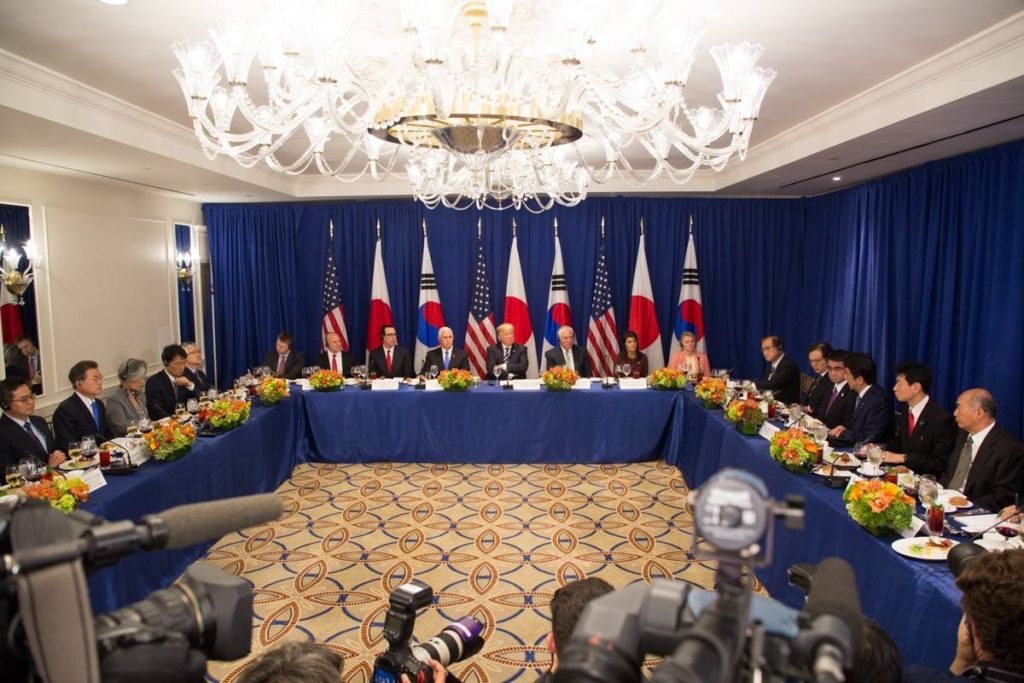The Peninsula
American’s Views on the Korea-Japan Dispute: Shallow and Deep

By Mark Tokola
The American foreign policy community—official and unofficial—is impatient with the current dispute between South Korea and Japan, which began as a trade dispute but has now broadened with Korea’s cancellation of an intelligence-sharing agreement, the GSOMIA (General Security of Military Information Agreement). South Korea and Japan are U.S. allies, both face common challenges from China and North Korea, and both are democracies with market economies. The general tone in Washington is one of, “Why can’t they just get along?”
Digging a little deeper, American attitudes towards the dispute are influenced by factors shallow and deep. On the shallow side is a traditional American lack of interest in history, summed up by Henry Ford’s aphorism, “History is bunk.” (He actually said: “History is more or less bunk.”) Even when we tell ourselves to remember something: “Remember the Alamo!” “Remember the Maine!” we tend not to. Given a choice between righting past wrongs and dealing with current problems, Americans prefer the latter. Even with an issue as monumental and consequential as reparations for slavery, the chief argument among those opposed to them is, “That has nothing to do with us today.” A serious consideration of Korea’s historic claims against Japan requires getting over the hurdle of an anti-history bias.
A deeper reason for American attitudes towards the Korea-Japan dispute lies in post-war policy. At the 1951 San Francisco peace conference, the United States was firm in its argument that the new Japan was a clean break from Imperial Japan, and was in any case too poor to pay significant wartime reparations. The United States was keen to foster a strong anti-Communist ally in the Pacific and holding Japan accountable for its wartime record was counter to this project. Even subconsciously, this postwar U.S. policy view may echo in its current attitudes towards Japan.
Digging down even further, Americans view Korean-Japanese history as being about Japan’s wartime occupation of Korea, whereas both Korea and Japan see it through the lens of the colonization of the peninsula that began in 1905, not in 1941. For Japan, the wartime conscription of the Japanese Empire’s Korean citizens seems a different case than abducting Korean laborers from a militarily-occupied Korea. Koreans tend to agree that this is all about colonization, but argue that the very act of colonization was illegal because the treaty ceding control to Japan was coerced. (See Alexis Dudden’s excellent book, Troubled Apologies, for more on the subject.) The United States holds that colonization as a general proposition may have been immoral, but was not per se illegal. As the product of an anti-colonial revolution in 1776 and as a later possessor of colonies, America’s history on the subject is complicated.
The United States, Japan, and Korea are the products of their histories. That should not get in the way of current cooperation, but neither should they be blind to it.
Mark Tokola is the Vice President of the Korea Economic Institute of America. The views expressed here are his own.
Photo from The White House photostream on flickr Creative Commons.
